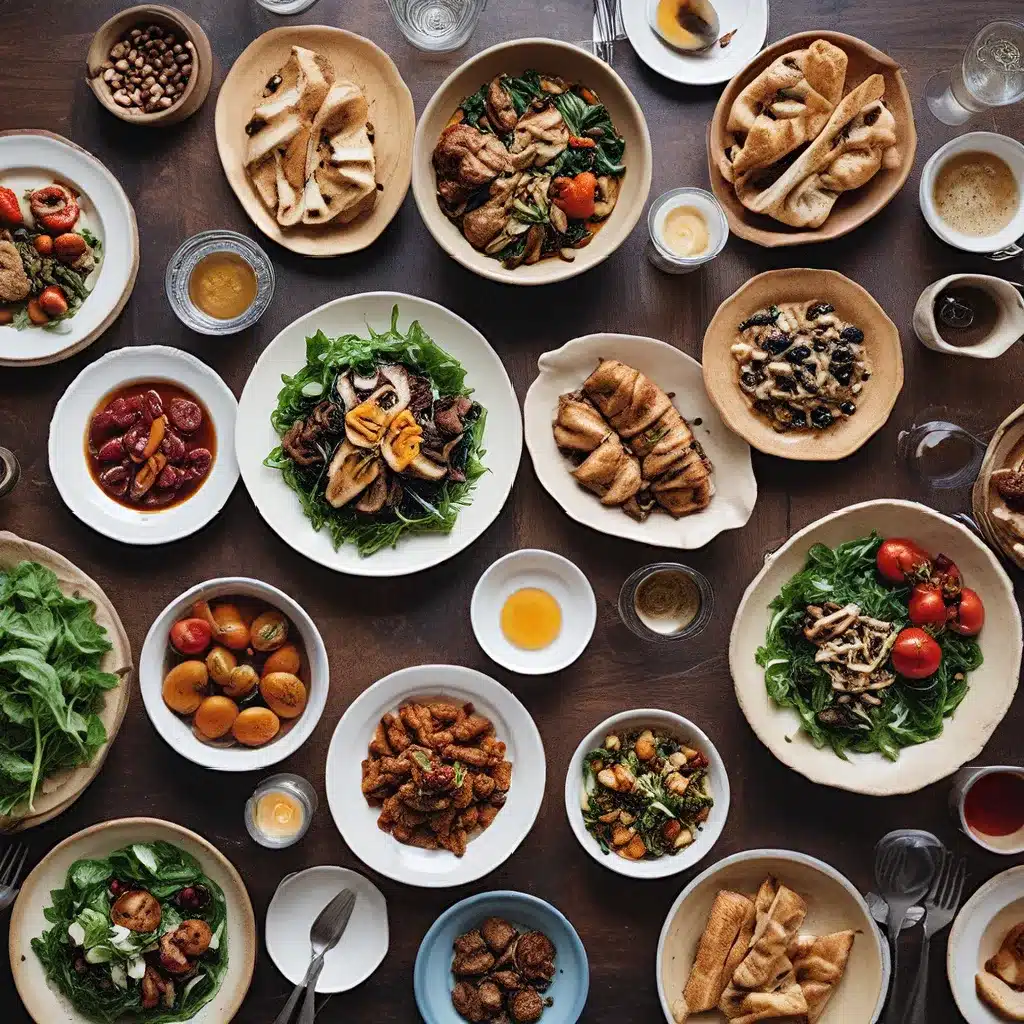
As someone who has always been passionate about food and the culinary arts, I’ve watched with fascination as the dining landscape has evolved in recent years. The rise of ethical eating – the conscious effort to make food choices that align with our values around sustainability, animal welfare, and environmental impact – has been a game-changer, both for consumers and the food industry as a whole.
The Shifting Landscape of Sustainable Dining
Gone are the days when ethical eating was dismissed as a fringe movement. Today, nearly a quarter of Americans report that they’re trying to eat less meat, driven more by concern for the environment than for animal welfare. This shift in consumer attitudes has had a profound impact on the way we approach food, from the meals we choose to the establishments we support.
One of the most notable trends has been the growing popularity of plant-based and flexitarian diets. By reducing our reliance on meat and dairy products, we can significantly lower our carbon footprint and support more sustainable food systems. But the journey towards ethical eating isn’t always straightforward, as I learned from my own experience.
My Unexpected Journey as a Pescetarian
Several years ago, I made the decision to stop eating animals for ethical reasons. Like many, I started down the path of a pescetarian diet, swapping my chicken quesadillas and beef burgers for salmon poke bowls. At the time, it felt like a step in the right direction – I was reducing my consumption of land-based animals, which I believed would be better for the planet and more humane.
However, as I delved deeper into the realities of the seafood industry, I began to realize that my pescetarian lifestyle was doing more harm than good. The overwhelming evidence that fish are sentient beings capable of experiencing pain and complex emotions was a revelation. I also became acutely aware of the sheer scale of the fishing industry, which slaughters an estimated 840 billion to 25 trillion fish each year – a staggering number that dwarfs the total number of land animals killed for food.
The Harsh Realities of the Seafood Industry
It’s a sobering fact that the typical American is responsible for the deaths of between 340 and 560 sea animals per year, a reality that challenged my previous assumptions about the ethics of eating fish. The mislabeling of seafood, the devastating environmental impact of commercial fishing, and the cruelty inherent in practices like ikizukuri (the preparation of sashimi from a still-living fish) all contributed to my growing discomfort with the seafood industry.
As I learned more, I couldn’t help but draw parallels between the way we treat fish and the way we’ve historically treated other non-human animals. The evolutionary distance and perceived lack of sentience in fish have long been used to justify their exploitation, much like the historical dismissal of intelligence and emotions in other species. But research has shown that fish have complex social behavior, the ability to feel pain, and a range of other cognitive abilities that demand our ethical consideration.
Embracing a Plant-Based Future
Ultimately, my journey as a pescetarian led me to the realization that the only truly ethical and sustainable choice was to embrace a plant-based diet. While the prospect of giving up seafood – a lifelong passion of mine – was difficult, I couldn’t ignore the overwhelming evidence that my consumption of fish was causing immense suffering and environmental damage.
By eliminating animal products from my diet, I’m not only reducing my personal impact on the planet but also contributing to a broader cultural shift towards more mindful and responsible eating. And the beauty of this approach is that it benefits both the environment and the animals we share this world with.
The Power of Individual Action
Of course, the transition to a plant-based diet isn’t always easy, and I know that many people struggle with the idea of giving up beloved foods. But I’ve come to believe that our individual choices can have a profound impact, both in terms of the lives we save and the social change we inspire.
Even something as simple as telling a friend about my journey as a pescetarian has had a ripple effect, convincing them to re-evaluate their own seafood consumption. And as more people embrace ethical eating, we’re starting to see real progress in the form of welfare reforms, improved farming and fishing practices, and increased investment in plant-based and cellular agriculture technologies.
The Road Ahead
To be sure, the path towards a more sustainable and ethical food system is a complex one, with no easy answers. But I’m hopeful that by continuing to educate ourselves, support meaningful change, and make mindful choices in our own lives, we can be a part of the solution.
As we navigate this ever-evolving landscape of sustainable dining, I encourage everyone to stay curious, ask tough questions, and be open to evolving our perspectives. After all, the stakes are high, and the future of our planet and its inhabitants depend on the choices we make today.
So, let’s dig in, explore the depths of this issue, and discover the joys of ethical eating in the modern age. Who knows where this journey might lead us?

